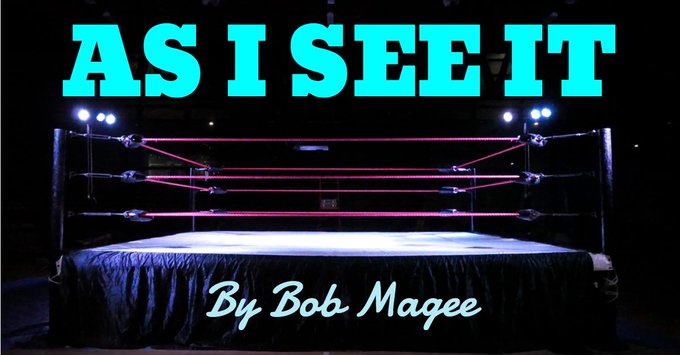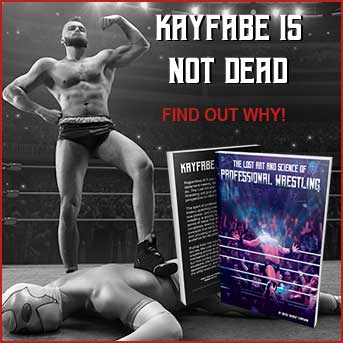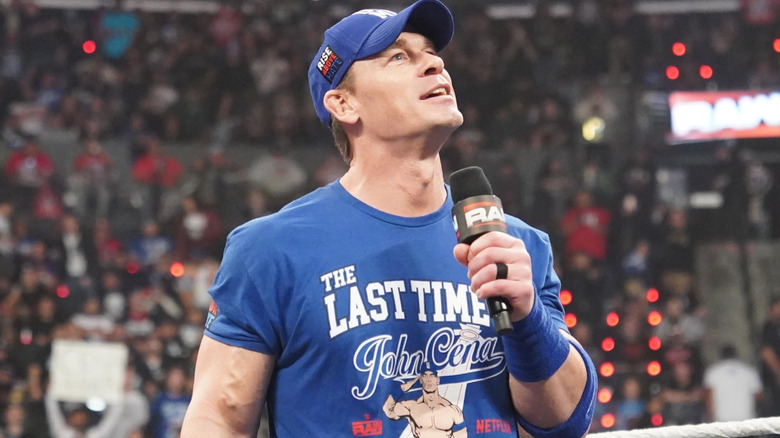
AS I SEE IT
Bob Magee
Pro Wrestling: Between the Sheets
PWBTS.com
Today is Martin Luther King Day, a sad day for many reasons
that need not be articulated here... At times like these,
it's worth remembering Sputnik Monroe.
For those of you who haven’t ever heard of him, Rocco Monroe
Brumbaugh, better known as Sputnik Monroe, was a legendary
character in the true old time Southern wrestling manner. If
that was all Sputnik Monroe was…that would have been more
than enough for a few good stories among old friends and
students of wrestling. He had a 43-year wrestling career
from 1945 to 1988, with one appearance at a legends show in
2005.
But his most important contribution to the world had nothing
to do with a program he worked, a legendary story about him,
or a dime he ever drew for a promoter.
The story was well-told just after his September 2008 death
on the old Smokebox.net website…how Rocco Monroe Brumbaugh
singlehandedly started the process of desegregating not just
wrestling…but entertainment overall in Memphis, TN.
The 2008 story from Smokebox.net goes like this:
“…Like all wrestlers, Sputnik would seek the approval of
the audience once he had destroyed his opponent. Just as the
surviving Roman gladiators would strut their stuff to
governors, patricians and other assorted Roman gentry in the
arena, Sputnik would perform his victory romp, exhorting
praise from the crowd.
But unlike any other white wrestler, Sputnik would not focus
his attention on the front rows, nor the women, nor the box
seats, nor the predominantly white on-lookers.
Instead, he would turn to the small black audience,
segregated away in the upper rafters of Ellis Auditorium,
and it was from them that he received kudos. Sputnik was
fast becoming a draw[ing] card and the promoters and
wrestling money people knew this.
He was able to use his notoriety to exact changes in the
wrestling establishment. He recalls, ‘There used to be a
couple of thousand blacks outside wanting in. So I would
tell management I’d be cutting out if they don’t let my
black friends in. I had the power because I’m selling out
the place, the first guy that ever did, and they damn sure
wanted the revenue.’
The way the business people would limit the black audience
was by counting the number of black people allowed entrance
into the auditorium, knowing exactly the seating capacity of
the ‘blacks only’ section. Sputnik would bribe the employee,
who counted black people, to lie to his boss, giving the
boss a much lower number of attendees than there actually
were. So, when the overseer would demand numbers, the door
guy would say something like ‘thirty’ when there were really
five-hundred or more black folks in the building.
Jim Dickinson, a well-known fixture of the Memphis music
scene, (he played piano on ‘Wild Horses,’ which the Rolling
Stones recorded at the Muscle Shoals Studio in Alabama)
remembers, ‘Finally, the audience got so big and heavily
black that they had to integrate the seating. There’s no
other single event that integrated the audience other than
the wrassling matches and Sputnik paying the guy to lie.’
Johnny Dark, now a Memphis sportscaster, was then president
of the Sputnik Monroe Fan Club.
He recounts, 'I remember one time Sputnik was wrassling in
Louisville. In the dressing room, this little black lady
came up to Sputnik, she had tears in her eyes, she said ‘You
don’t remember me, you never met me, but I used to live in
Memphis, when they made us sit upstairs in those buzzard
seats. You’re the one who got them to change that.’ That was
the first time I saw Sputnik with tears in his eyes.'
Sputnik’s one-man campaign had ripple effects all across
Memphis, not only in the black community, but also among
young white kids. Elvis, Jerry Lee, Carl Perkins, Johnny
Cash and Sam Phillips had already opened the valve,
releasing emotions in young white people that caused grave
concern for the enforcers of the status quo. And here was
this upstart wrestler, not just playing with young kids
minds, but messing with the gas that fueled how things ran
in Memphis, namely racism.
Another fan of that era, Jim Black says ‘I went through my
whole twelve years at school having never been able to share
an experience with a black, and I was starting to resent
this, because I was also listening to radio and Dewey
Phillips, and hearing all these great black records and
realizing that these were some talented artists, this was
another culture.
Where, at first, we’d gone to the matches hoping to see
Sputnik get beat, we started to realize that he was pretty
$@#@ng cool. He had his audience, and he never played down
to ’em, never talked down to ’em. He became a role model.’
Sputnik says this of his influence on young whites, ‘There
was a group of wealthy white kids that dug me because I was
a rebel. I’m saying what they wanted to say, only they were
just too young or inexperienced or afraid to say it. You
have a black maid raising your kids and she’s talking about
me all of the time, so I may not be in the front living
room, but I’m going in the back door of your @#@$@ house,
feeding your kids on Monday morning and sending ’em to
school. And meeting the bus when they come home. Pretty
powerful thing.’
Sputnik’s influence went way beyond the wrestling ring. He
interfered righteously with the city fathers’ plans for
business- as-usual. In one instance, the black leadership in
Memphis was involved in a protest against the segregation of
an automobile exhibition. Sputnik called up the sponsors and
told them that he was planning to open his own car lot in
the black community.
That night, the change of admission policy was broadcast on
the evening news.”
Monroe also was part of an interracial tag team with Norvell
Austin in 1971, a pairing which was unheard of at the
time....and were heels yet. Monroe and Austin had a joint
catch phrase where Monroe said "black is beautiful" and
Austin would reply "white is wonderful"...strong words for
wrestlers in the American South only three years after the
murder of Martin Luther King.
For those who’ve grown up in a world where anyone travels on
a bus…sits in a movie theatre or sports arena anywhere they
choose to (or least can afford)…eats in a restaurant…goes to
a college or university… all this may seem hard to
understand.
But what Rocco Monroe Brumbaugh did defies description when
you look through the eyes of his times. The Jim Crow South
featured an entrenched racism that is horrifying to look at
in retrospect, with racial separation in public
transportation an accepted fact. There were separate water
fountains for blacks and whites. Blacks were kept from
eating in (white) restaurants, and were forced to attend
separate (but not equal) schools.
I’m old enough to have watched the civil rights movement
unfold through the 1960s. Blacks and whites lost their lives
attempting to desegregate the South. As a eight year old
child living in suburban Detroit, I remember hearing about a
local Detroit-area woman, Viola Liuzzo, who was murdered in
1965 by racist whites for in daring to do her part to
desegregate the South. She drove alone to Alabama to help
with the Selma march after seeing televised reports of the
attack at the Edmund Pettus Bridge. She was driving marchers
back to Selma, AL when she was murdered.
There were others like Lamar Smith, murdered in broad
daylight on a courthouse lawn for organizing voting
drives... Herbert Lee, murdered by a Mississippi state
legislator in cold blood for driving blacks to register to
vote.... James Reeb, a Unitarian minister clubbed to death
in Selma...Jimmie Lee Jackson was shot by an Alabama state
trooper as he tried to protect his grandfather and mother
from a trooper attack on a civil rights march...James
Chaney, Andrew Goodman, and Michael Schwerner murdered for
campaigning for voting rights during the Freedom Summer
campaign in Mississippi….and too many others.
Thousands more were jailed, beaten, and ostracized for
efforts toward equal public accommodations, ending "separate
but equal" schools, and gaining equal voting rights. Rocco
Monroe Brumbaugh took a chance by doing what he dared to do,
and put his own life at risk. He and his family got their
house egged and their lives threatened (as well those of his
children). Fortunately, he didn’t have to pay with his life.
He was one of the lucky ones.
We've seen a succession of incidents over last few years,
and are likely to see quite a few more in the next four
years that remind us that we are nowhere near successful in
dealing with America's original sin: racism. America saw an
attempted coup four years ago with white supremacy at its
very roots, with the Proud Boys and Oathkeepers making up
the shock troops that invaded the Capitol.
There are few physical reminders of what Sputnik Monroe did
back in those days in Memphis. The Ellis Auditorium was torn
down in 1999 to make way for an expansion of the
Memphis/Cook County Convention Center. These days, most
wrestling fans think of the Mid-South Coliseum or even the
WMC TV studios when they think of Memphis wrestling….not the
Ellis Auditorium, let alone what occurred there.
One of the few reminders of that day exists at the Memphis
Rock and Soul Museum, located on Beale Street, where Monroe
was publicly honored in 2002 for his role in the integration
of public events.
As a wrestler, Sputnik Monroe was a headliner in many
territories. He and Billy Wicks set a Memphis attendance
record with their long-time feud, one that lasted all the
way until the 1990s Monday Night Wars. Monroe’s last major
public wrestling appearance was in July 2005, when he and
Wicks reprised their feud at a legends show.
Wrestling fame notwithstanding, Brumbaugh should be known
around the United States and anywhere this blog runs for
helping to desegregate one of the largest cities in the
American South. For that alone he ought to be a bigger hero
than anyone we’ll ever see on online, on Monday or Wednesday
nights, or in a lifetime of PPVs.
Sputnik Monroe was certainly that hero to many in Memphis's
black community, even 40 plus years later. John (Johnny
Dark) Dougherty, cited in the 2008 Smokebox story above,
tells a story of walking down Beale Street with Monroe just
before his 2006 death:
“We were walking down Beale Street and a teenage black
kid came up to us and he said, ‘Sputnik Monroe.’ Sputnik
said, ‘You weren’t even born when I was here.’ The kid said,
‘My mom’s family has a picture of you on the wall.’ He said
they had a picture of John Kennedy, Martin Luther King Jr.,
Sputnik Monroe and Jesus Christ."
If you'd like to contact me, you can do so at my
bobmagee1@hotmail.com account or to through Facebook
Messenger at https://www.facebook.com/bob.magee.180, direct
message me at https://twitter.com/BobMage70323520, or
contact me at BlueSky at
https://bsky.app/profile/bobmagee940.bsky.social
Until next time...














